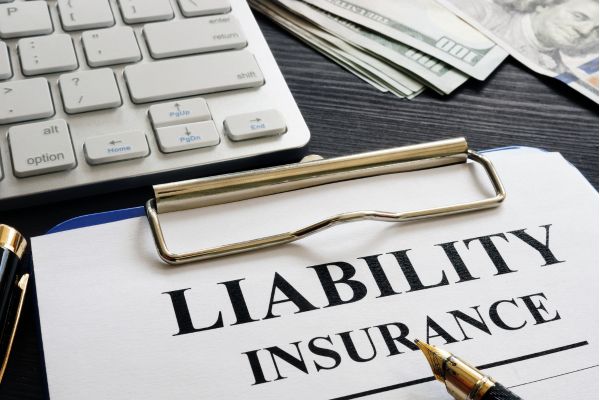Every day, businesses and individuals face a myriad of potential risks that could lead to significant financial loss. From accidents causing bodily injury to allegations of professional negligence, these risks can pose a severe threat if not appropriately managed. This is where liability insurance steps in, serving as a financial safeguard against such predicaments. In this article, we’ll explore the concept of liability insurance, its various types, why you might need it, and the role it plays in protecting your financial stability. Whether you’re a business owner, a service provider, or an individual seeking to understand how to protect your assets, this guide will equip you with the knowledge you need about liability insurance.
The Basics of Liability Insurance
Liability insurance is a part of the general insurance system that protects the policyholder against potential risks of liabilities imposed by lawsuits and similar claims. It is designed to offer specific protection against third-party insurance claims, i.e., payment is not typically made to the insured, but rather to someone suffering loss who is not a party to the insurance contract.
The purpose of liability insurance is to shield the policyholder from the risks of liabilities caused by lawsuits and similar claims, subsequently protecting the insured’s assets and peace of mind. Whether it’s a customer who slips and falls in your store or a client who claims your advice led to financial loss, liability insurance can cover the costs associated with these events.
Liability insurance policies cover both the legal costs and any payouts for which the insured party would be responsible if found legally liable. Regardless of whether you run a business, provide a service, or simply drive a car, liability insurance is a crucial part of any comprehensive insurance plan.
Different Types of Liability Insurance
Liability insurance comes in many different types, each designed to protect against different types of risks. Some of the most common include general liability insurance, professional liability insurance, auto liability insurance, and directors and officers liability insurance.
General liability insurance is a broad type of policy that covers bodily injury, property damage, and personal injury claims that your business may face. It’s essential for any business, regardless of size or industry.
Professional liability insurance, also known as errors and omissions (E&O) insurance, protects businesses against claims that professional advice or services caused a client harm. This type of insurance is critical for anyone who provides a service for a fee.
Auto liability insurance covers you in the event of an accident in which you are at fault. It’s required by law in most states.
Directors and officers (D&O) liability insurance protects directors and officers of a company against their actions that affect the profitability or operations of the company. It is essential for corporate leadership to mitigate personal risk.
General Liability Insurance Explained
General liability insurance, also known as commercial general liability (CGL), protects your business if someone gets hurt on your property or when there are property damages or injuries caused by you or your employees. It also covers legal defense costs if any of these incidents result in a lawsuit.
A CGL policy protects your business against claims of bodily injury or property damage for which your business may be liable. For example, if a customer slips and falls in your store, your general liability policy can cover their medical expenses and any legal costs if they choose to sue.
General liability insurance is an essential component of any business’s insurance policy. It’s often required for commercial leases and contracts and can be a lifesaver in the face of a lawsuit, which can be incredibly costly and time-consuming.
Understanding Professional Liability Insurance
Professional liability insurance, also known as errors and omissions (E&O) insurance, protects you and your business against claims that a service you provided caused your client to suffer due to a mistake on your part or because you failed to perform some service.
E&O coverage often covers legal defense costs even when the legal action turns out to be groundless and can provide protection for your business, your reputation, and your financial wellbeing.
Whether you’re a consultant, a real estate agent, or a software developer, if you’re in the business of providing a service to clients for a fee, you’re at risk. That’s where professional liability insurance comes in to provide the protection you need.
Importance of Auto Liability Insurance
Auto liability insurance is one of the most commonly known types of liability insurance due to its legal requirement in most states. This type of insurance covers the costs if you’re at fault in a car accident that injures another person or damages their property.
Auto liability insurance is divided into two types of coverage: bodily injury liability coverage and property damage liability coverage. Bodily injury liability covers the costs associated with injuries to the other person involved in the accident, while property damage liability covers the costs of damages to the other person’s property.
Not having sufficient auto liability insurance can lead to financial ruin if you’re at fault in an accident, and it’s important to understand the coverage limits and deductibles associated with your policy.
An Overview of Directors and Officers Liability Insurance
Directors and officers (D&O) liability insurance protects the personal assets of corporate directors and officers, and their spouses, in the event they are personally sued by employees, vendors, competitors, investors, customers, or other parties, for actual or alleged wrongful acts in managing a company.
D&O insurance policies cover a range of lawsuits including breach of fiduciary duty resulting in financial losses or bankruptcy, misrepresentation of company assets, misuse of company funds, fraud, failure to comply with workplace laws, theft of intellectual property, and lack of corporate governance.
In today’s litigious society, D&O insurance has become increasingly important as company leadership can be personally sued for the actions of the company. It’s an essential element of a company’s risk management strategy.
Understanding the Importance of Liability Insurance for Individuals
While businesses often face a greater range of potential risks, individuals should not overlook the importance of personal liability insurance. This type of insurance can protect individuals from claims of bodily injury or property damage that they or family members may cause to other people.
For instance, if a guest trips and falls on the steps of your home, personal liability insurance can cover their medical costs and any legal expenses should they decide to sue. Personal liability insurance is typically included in homeowners and renters insurance policies.
In a litigious society, personal liability insurance provides critical protection for individuals and families, giving them peace of mind knowing that they’re safeguarded against potentially significant financial losses.
How Much Liability Insurance Do You Need?
Determining how much liability insurance you need can be a complex task. It largely depends on your risk exposure – the greater your potential risk, the more coverage you likely need.
For businesses, the risk exposure may be influenced by the industry, business size, and the perceived risk associated with the operation. For individuals, the level of risk can be affected by factors like lifestyle, wealth, and occupation.
It’s essential to work with a knowledgeable insurance agent who can help assess your needs and guide you in selecting the right amount of coverage. Remember, the goal is not to just fulfill minimum requirements but to ensure adequate protection against potential risks.
What Does Liability Insurance Not Cover?
While liability insurance covers many scenarios where a policyholder might be held financially responsible for causing harm or damage, it doesn’t cover everything. For example, intentional acts of harm or damage are generally not covered. This can include acts of violence or purposely damaging another person’s property.
Furthermore, contractual liabilities, where the insured assumes the liability of another party by agreement, are often not covered under standard liability insurance policies.
It’s important to thoroughly read and understand your policy to know what is and isn’t covered. An experienced insurance agent can be a valuable resource in understanding your policy’s exclusions.
The Role of Liability Insurance in Risk Management
Liability insurance plays a crucial role in risk management – the process of identifying, assessing, and controlling threats to an organization or individual’s capital and earnings. By transferring the financial risk of a loss to an insurance company, liability insurance allows businesses and individuals to focus on growth without the fear of potential risks derailing their success.
Investing in liability insurance ensures that when the unexpected happens, the financial burden of a claim won’t fall entirely on your shoulders. It’s an essential tool for managing risk and protecting financial stability.
Conclusion
In conclusion, liability insurance serves as a critical shield against potential risks that could lead to significant financial losses. From protecting businesses against customer injuries and professional mistakes to safeguarding individuals from the financial repercussions of a car accident or accident on their property, liability insurance serves as a key pillar of financial protection. Understanding the various types of liability insurance and the unique protection each one offers is an essential step in managing risks effectively. Always remember, while insurance is an expense, it’s far more costly to face a liability claim without it. Protecting yourself or your business with adequate liability insurance is not merely a smart decision—it’s an investment in peace of mind.



